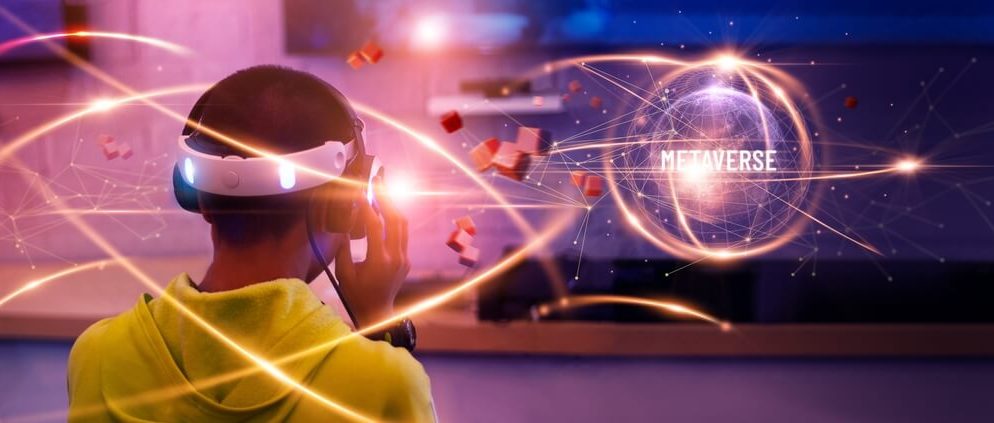



Get new exclusive access to healthcare business reports & breaking news




Technology is impacting healthcare on numerous levels. From a patient’s point of view, technology can enhance their experience. From a healthcare provider’s point of view, it can streamline processes and workflow, improve efficiency, and create new revenue streams.
While the future of technology is difficult to predict, it will certainly continue to transform the healthcare industry.
Let’s look at some real-world examples of how technology is changing healthcare.
Artificial intelligence has made significant waves across many industries as a valuable technology in 2022, particularly in the healthcare sector.
Data is the most crucial factor driving artificial intelligence’s success in healthcare. Training data, to be precise. As the quantity and quality of data improve, so performs the model.
Artificial intelligence algorithms can build treatment programs, produce pharmaceuticals faster than any existing clinician, and even identify malignant and noncancerous tissue samples with the capacity to mine medical information.
For example, DeepMind and Google Health collaborated to develop an AI technology that can detect breast cancer in women.
Using two datasets of mammography images from the US and UK, the AI outscored six doctors on average by 12.1%.
It’s early days, but DeepMind has proposed that it may be used as a “second reader” to provide radiologists with an automated second opinion.
Another example is Corti, a Danish company whose algorithms can predict out-of-hospital cardiac arrests faster and more precisely than people.
During the call, Corti’s software functions as a personal assistant for the dispatcher, pushing them to ask the caller particular questions and then recommending whether or not the person is experiencing cardiac arrest.
Patients’ empowerment, closely linked to the future of healthcare and medicine, involves taking better care of their health with the help of technology such as wearables, health trackers, and sensors. These fantastic technologies provide us with more information about our health and greater control over our life.
There is a gadget for every need, whether you want better control of your stress, weight, or cognitive skills or just want to feel more energetic and healthier overall.
These tech gems really put patients at the center of treatment. Patients may monitor their health at home and share the data with their doctor remotely. They may use gadgets to make better choices and take charge of their health.
An interesting example is Dexcom’s continuous glucose monitor (CGM) sensor. It reads and sends real-time glucose data to your mobile device up to every five minutes, even when you’re sleeping. As soon as your blood sugar drops dangerously low, the Dexcom G6 will let you know. This way, you can be proactive with your diabetes management and take action when necessary, which will help you stay healthy.
From when the pandemic began in 2020 to now, telemedicine has come a long way. Healthcare providers now regularly meet with patients over the Internet to discuss their problems and advise them.
You can use an app to communicate with your doctor and set up appointments if you have minor symptoms.
Because of telehealth, people can also look for a second opinion or talk to doctors in other cities or countries to make the treatment process even more accurate and effective.
Doctor On Demand is an excellent example of telehealth. They provided virtual healthcare for the mind and body 24 hours a day, seven days a week, covering urgent care, mental health, preventative, primary, and chronic care, with access to board-certified physicians and licensed psychologists via smartphone, tablet, or computer.
Another great example is home tests. Self-testing kits, such as glucose tests, HIV tests, and most recently, COVID-19 tests, have become increasingly popular and cost-efficient.
Home tests help eliminate the cost of an appointment and help reduce wait times. Additionally, they give people a sense of control over their health.
Pharmaceutical firms can access more data as technology advances, allowing them to improve existing treatments and make the treatment process more successful.
The present method of developing new medications is both costly and time-consuming. New approaches such as artificial intelligence (AI) enhance medicine development. In the future, these innovative techniques and technology will transform the pharmaceutical landscape.
In Silico Trials is an example of emerging medical technology that’s revolutionizing drug development. These individualized computer simulations are utilized in the regulatory assessment or development of healthcare devices, products, and technologies.
Another example of how technology disrupts the pharmaceutical industry is Mark Cuban’s new online pharmacy with over 100 generic drugs. Cuban’s Cost Plus Drug Company sells prescription drugs at a fraction of the price customers are now paying.
This could be great news for 18 million people in the United States who could not have afforded at least one doctor-prescribed prescription in the preceding three months, according to a Gallup poll conducted in September 2021.
We can only expect to see more similar projects and more innovations in healthcare software development. Many development companies are successfully working on the digitalization of pharmacies and the development of custom IT health solutions.
As technology advances, it will enable new, more effective ways to treat patients. It will make medicinal procedures more efficient and affect how doctors diagnose illnesses.
Technology also allows us to track our health data, which helps us better understand our overall health and gives us more control over our care.
Technology is changing healthcare, and we can only expect more with significant developments on the horizon.